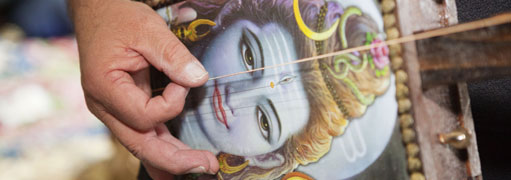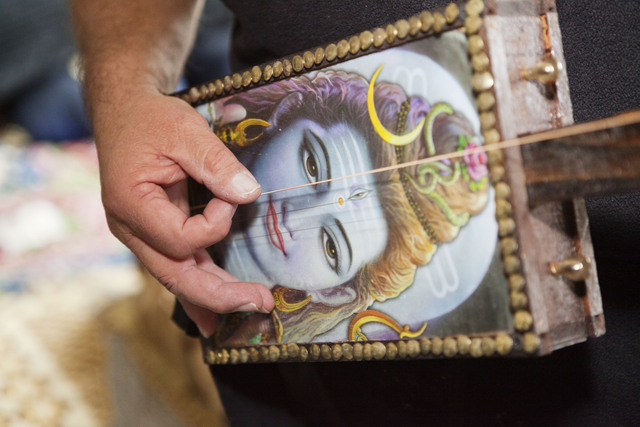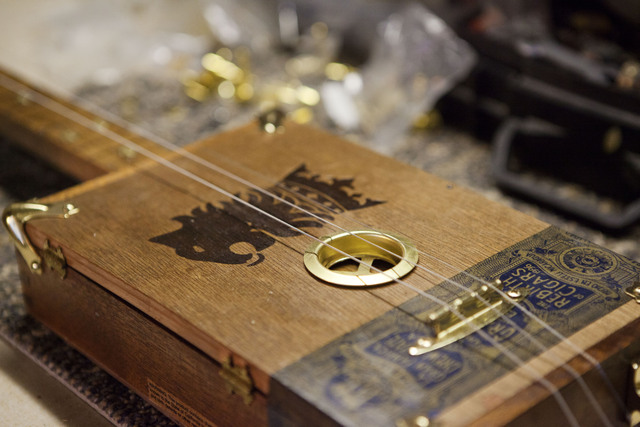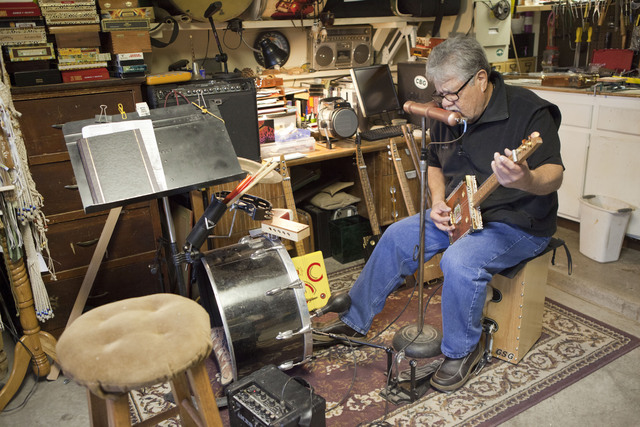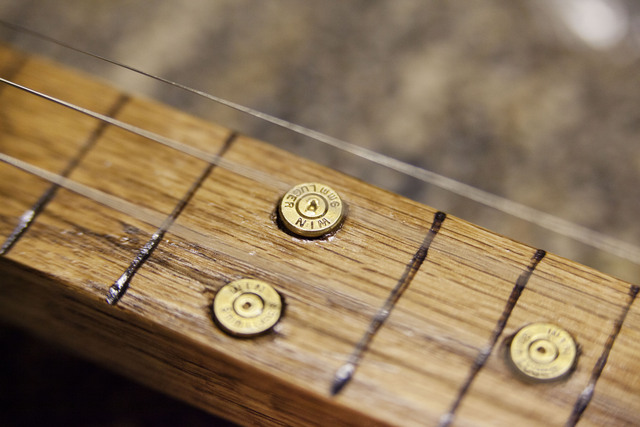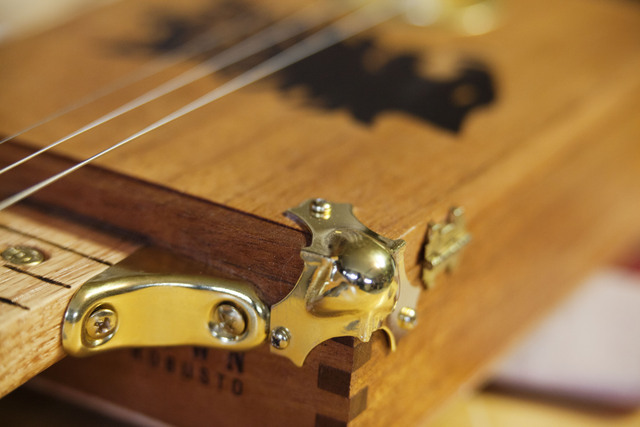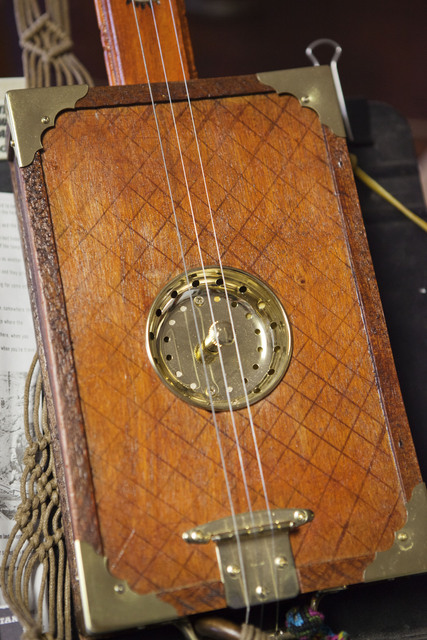Two things the average human might not know: Paul McCartney played an electric cigar box guitar during a couple of recent Nirvana reunions, which sent shock waves through the cigar box guitar universe; furthermore, there is a cigar box guitar universe. In fact, there’s a large community of individuals whose passion for building and playing cigar box guitars is equaled only by the irony of a very wealthy (and overrated) Beatle playing one of mankind’s cheapest guitars. Even in the hands of an Englishman, the cigar box guitar is a quintessentially American instrument, built out of whatever materials might be available and at low or no cost. Since the dawn of civilization, folks have made no-budget guitars and banjos (or dulcimers) out of everything from gourds to rakes, birdcages to cereal boxes, but when tobacco companies started packaging cigars in small wooden boxes in the mid-1800s, a consensus quickly formed that they provided the best readymade (and usually free) bodies with which to build a guitar. The basic desire for a musical instrument, a lack of money or scarcity of available instruments and a scavenger’s zeal for possibility all come together in a maelstrom of obsession that drives cigar box enthusiasts to make guitar after guitar.I met local cigar box guitar guru Hector Peña one afternoon by chance on the Old Town plaza, where he was busking with his comrade, cajón player Devon Hall. After introducing myself, I took a closer look at his instrument. My first impressions were: “Holy shit, it’s electric” and “are those bullets inlaid in the neck?” Peña’s guitars—which he makes in Albuquerque and sells in Madrid—are built out of bolts, stove parts, license plates, cabinet handles and hinges, decorative house trim and moulding, rare coins, brass tacks, the odd brass kitchen sink basket strainer and miscellaneous junk he finds in the street. The necks are constructed out of oak, but he would happily employ any suitable hard wood. As a rule, cigar box guitars are amplified by a Piezo pickup, a flat disc that can be found in smoke detectors and electric drums and which is often used to amplify stomp boards. They’re cheap at 30 cents each and simple to wire to an input jack. “Where you put it and how you put it determines the sound you’re going to get,” says Peña. “Some of them I insulate and some I leave open; some I’ll embed it in the wood, and some I’ll put two of them in different places and with two volume controls, placing them where the main action is.” One unique feature of Peña’s guitars is his use of a cabinet hinge for a bridge. Unlike most cigar box guitars—wherein builders push the neck through the bottom end of the body to create a tailpiece—he employs a cabinet handle, anchoring the strings to it and giving the finished guitar a tight, streamlined look. Peña’s method results in a world-class piece of folk art, but what he’s really trying to achieve is a conduit for “the mojo.” “The way I achieve the sound is that my tailpiece, my bridge and the nut are all metal, so you’re going to get a real high-fidelity twang, because there’s no wood deadening the sound.” His preferred box is the Arturo Fuente King or Queen B, which he buys from cigar parlors locally or in whatever town he happens to pass through. Arturo Fuentes boxes are big, and he likes the original artwork on them. Peña is “a wild-three person,” meaning his guitars have three strings, and he’s a slide player, so most of his guitars are fretless. Pointing to the ever-present metal slide on his finger, he admits it’s his new wedding ring.A native of East Los Angeles, Peña retired to Albuquerque in 2007. “[There are] so many artists and miracles here. ‘Weird’ has been an operative word here, and Madrid is like the zenith of that. And that’s where I was really able to find my niche with this product. I go there about once a week,” he says. “People are flocking to buy these. Cigar smokers, players who want to record or perform with it. They dig it. They like the sound.” Many of Peña’s customers are women. He says it’s because they’re “into the blues.”These days, Peña makes a living selling his guitars. He attributes his journey down this path to a miracle: “I got in a pinch, money-wise. I was a wandering musician and I’ve had the chance to play with some local cats like Zoltan Orkestar, but I broke away, and after my encounter with [the hugging guru] Amma—she whispered in my ear that everything was going to be alright, and after that, everything was alright—that’s when things started happening.” Peña started building his guitars, signed up on the Cigar Box Nation website and began networking. When McCartney got on stage with a four-string, fretted cigar box guitar, Peña realized he was riding another wave. The two years since Amma gave him that hug have been years of passion for the humble, homemade cigar box guitar.“A lot of musicians say ‘it’s just a toy, there’s nothing in there,’ but there’s a lot in there,” Peña says. He wears brotherly love on his sleeve and wants to share the knowledge and joy that creating and playing these instruments has brought him. To that end, Peña plans to teach a workshop in 2013 to share the know-how he’s acquired. His larger goal is fully incorporating the Southwest into the Cigar Box Nation, whose population largely resides on the East Coast. It should be a big year for the cigar box guitar and for the proselytizing Peña, who’s just finished recording and plans to perform his jug-music as much as possible this year. “It’s history. It’s a really nice part of history that I never knew about until I became an adult,” he says. “It can help a lot of people to get back on the horse with their music, because it’s not a complicated thing to play [or] build.” Fans of DIY, Americana and fine music should know this is not only the year of the snake. It’s also the year of the cigar box guitar, and Burqueños are blessed by the presence of a devout emissary from that nation.Listen to Peña’s demo tracks, “Gettysburg” and “Homeless Brother”: bit.ly/peña-uno bit.ly/peña-dos
Cigar box guitar talk/demo/performancewith Hector PeñaSunday, Feb. 3, 1-3 p.m.Bright Rain Gallery206 San Felipe NWFree, all-agesbrightraingallery.com
